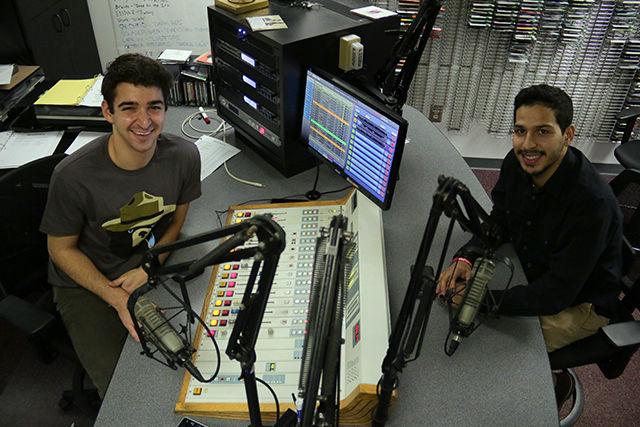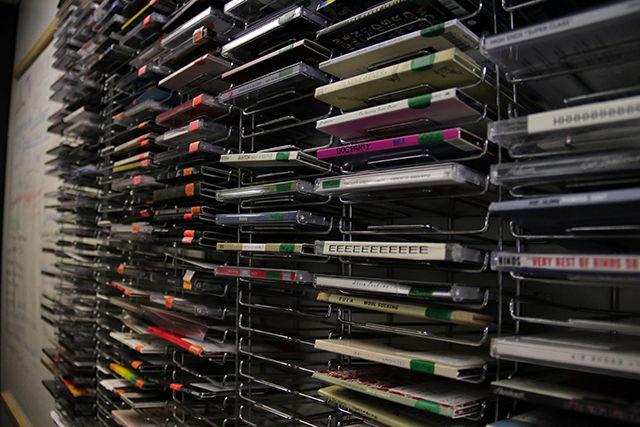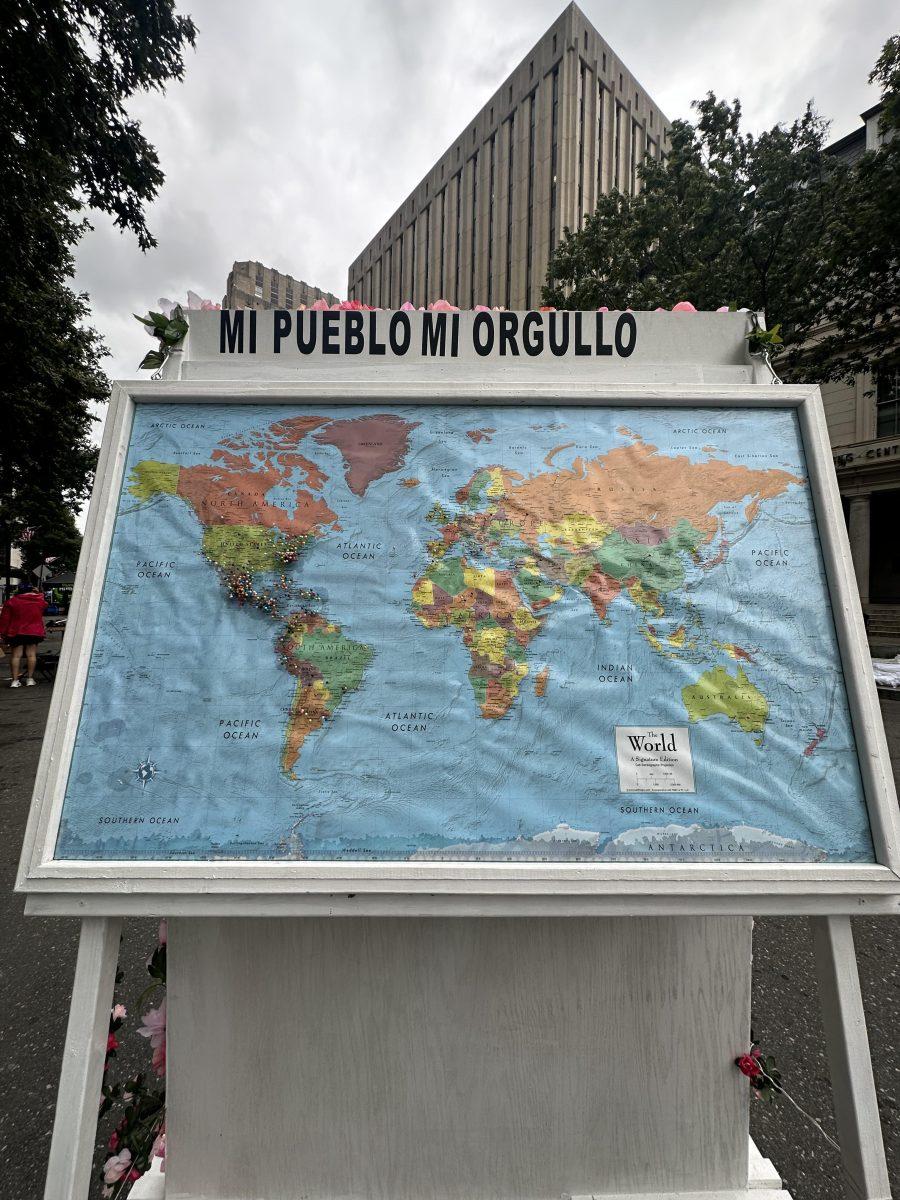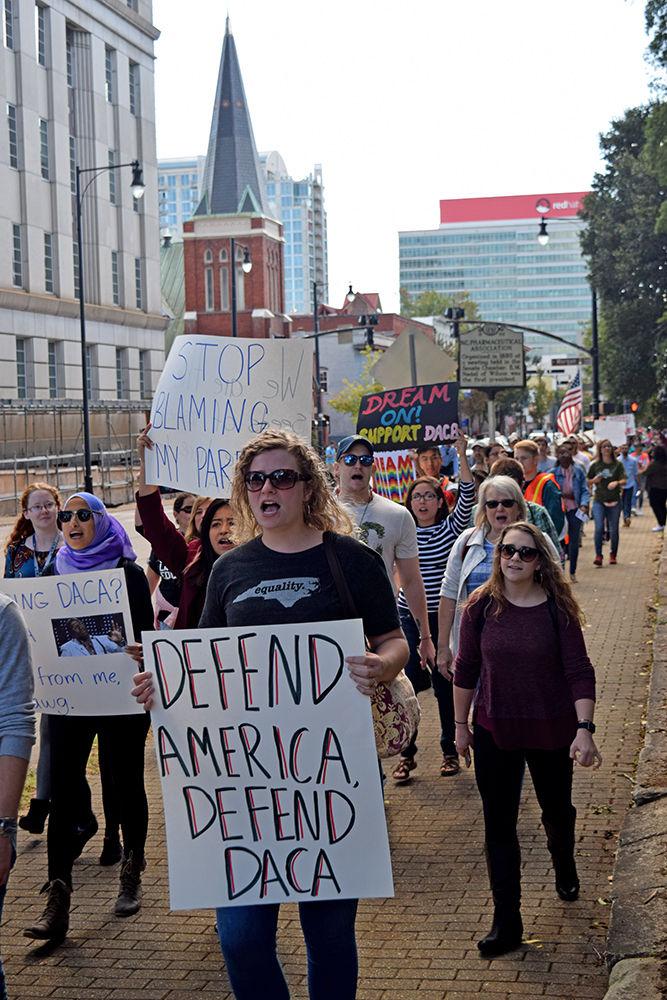15 years later ‘Canto de Lobos’ revives Spanish radio program for NC State
When “Buena Vista Social Club” premiered as a documentary in the summer of 1999, it did more than tell the story of a group of aging Cuban musicians. The compelling story of their return to the music scene brought about a wave of Cuban-American pride throughout the United States. In particular, it inspired a young Cuban-American student in the Poole College of Management at NC State to start his own Spanish radio program at NC State’s student-run radio station, WKNC 88.1 FM.
“When that movie came out, there was this rekindled interest in Cuban music,” said Joe Ovies, a 2001 NC State alumnus and co-host on 99.9 FM The Fan ESPN Radio. “Being Cuban, I already had that in my background; my parents would always play Cuban music like Beny Moré and all that, Pérez Prado.
“My dad had all these CDs and records, and those came from his dad — all these Cuban records, so I thought if this was like the hotness right now, why not play Cuban records?” Ovies said. “In a way, too, for me, it forced me to research artists.”
At the turn of the century, it was a lot more difficult to find music from a specific genre for a specific audience.
“You have to remember, back in 1998, 1999, we didn’t have all the streaming music at your fingertips, right?” Ovies said. “But now, if we were to dive into a genre, I would just go to Spotify or Apple Music, and it’s all there for me; there’s already curated playlists and all this other stuff. These are the proto days of the Internet, and that stuff wasn’t readily available —but I had it, so it kind of forced me to dig through old stuff, find the stuff that was good, see how that branched into other artists. Then a way to do that was, ‘Hey, I’ll fill up two hours of radio on a Sunday.’”
Ovies called the show “Domingo Gigante,” a clever spinoff of the popular “Sábado Gigante,” a Saturday night show hosted by Don Francisco that aired on Univision for more than four decades, up until about a month ago.
Ovies also said that hosting the weekly Sunday show was a way to polish his Spanish, which at the time he greatly desired.
“I grew up bilingual, but I also grew up in a South Florida suburb called Boca Raton and went to a small, private Catholic school where there was no Spanish spoken, and all of my friends growing up in a mainly suburban town weren’t Spanish,” Ovies said. “So the only time I would actually use my Spanish would be when I would go to Miami or vacation with my cousins.”
Although Ovies said he enjoyed his Spanish radio program, he had no intention to venture into Spanish media as a profession.
“I know what English-speaking audiences want to talk about,” Ovies said. “They want to talk about the National Football League, and locally, they want to talk college basketball, college football. Once you get into the Spanish language in sports, it’s fragmented. It’s too fragmented. They’re into soccer, but not all soccer. If I want to talk about soccer on my program, I have to talk about international soccer, or like, the Premier League. If I’m talking about soccer in the Spanish language, what soccer am I talking about? Mexican soccer? I could probably talk about the NFL, because so many people are watching the NFL, but it gets too fragmented.”
Nowadays, if Ovies were to run his Spanish radio program, he said his choice in music would be a little more varied than the Cuban selection he played as a student.
“I would probably try to find other genres within Spanish music and not just do old Cuban stuff,” Ovies said. “I would probably try to incorporate Calle 13 or something like that. Or Ozomatli. Ozomatli is one of those bands that has a lot of crossover appeal because they recognized they could get rappers to help them branch out to a wider audience if they wanted to.”
Fast-forward to March 2014. Diego Cancel, then a junior at NC State, started a radio show under the name “Arroz con Pollo,” which, after a series of name changes, is now known as “Canto de Lobos.”
According to Cancel, now a senior studying environmental technology, he initially started the program to give Latinos a voice.
“I feel like there’s enough Latinos in the area, and enough people who are interested in learning Spanish like Marc — prime example — that having at least one Spanish radio show is a good way to give the Latino community a voice,” Cancel said.
The Marc that Cancel is referring to is Marc Celestini, a senior studying electrical and computer engineering, who began working with Cancel within the past year as a way to improve his Spanish.
“So, obviously, I’m not Latino, so I can’t claim ‘the Latino community’ as my authority on this point [of why I started with the program], but I’m really trying to immerse myself and learn Spanish as holistically as I can, and I’m realizing that it’s more than just words, it’s the culture behind the language that makes the difference,” Celestini said.
Before participating on the air with Cancel, Celestini said he falsely believed he was well-versed in all types of music, including the Latin genre.
“I love all different types of music, and I prided myself on having a diverse music library,” Celestini said. “But then I realized that the only Spanish music I had in my library was only really stereotypical music.”
Since adding Celestini to the show, Cancel admits that he’s been able to appreciate the difference in tastes of music that comes from having another DJ.
“When you listen to the show, you can tell that it’s a combination of our music,” Cancel said.
“If I did the music by myself every week, I would almost never play rock, indie, EDM [electronic dance music] stuff in Spanish just because I’m not exposed to that. But if you look at Marc’s library, he has a bunch of indie, and things like that which I don’t have — in addition to salsa, merengue, bachata.”
Despite the fact that Cancel grew up in a Spanish-speaking environment in a Puerto Rican family, and Celestini did not grow up in a Spanish household, both have seen their Spanish improve in various ways since starting the radio show.
“Puerto Ricans have this stereotype of having pretty bad Spanish; we cut our s’s and r’s and stuff like that,” Cancel said. “But for the radio show, I’ve learned to pronounce my Spanish a lot better, to the point where Puerto Rican’s tell me I don’t sound Puerto Rican anymore, and other Latinos have told me I sound Spanish sometimes. I don’t do the lisp, but it has improved my diction.”
“For me it’s given me the confidence that I can speak Spanish,” Celestini said. “I remember one of the first shows we did, before I went to Peru and Spain to study, I was really nervous and felt like I had a really tiny role. But the first show we did when I got back, I felt a lot more comfortable and wasn’t thinking about it. It’s really given me a pretty solid standard that I can communicate in Spanish.”
Celestini and Cancel both add that their main goal with the program is to increase their audience.
“The main goal is to grow listenership, but the reason we want more listenership is to be able to sponsor better events, educate the public about the Latino community and to let people know that the Latino culture isn’t a stereotype,” Cancel said. “Like every other culture, you can’t just chock down any culture to one set of ideals.”
In order to grow that listenership, though, Ovies said the key is to utilize social media to create a persona with whom people can trust and identify.
“The thing about radio that I don’t think people realize is that the biggest hurdle is that the audience has to choose to let you into whatever it is they’re doing that day,” Ovies said. “People decide that after they’re done with work, and they get in their car, they decide to turn us on.”
It seems that “Canto de Lobos” has done just that, as both DJs said that it has its own kind of identity now.
“We kind of know what ‘Canto de Lobos’ plays, what’s us, and what doesn’t fit with our program, and have fun with it,” Celestini said.
“Canto de Lobos” can be found on Twitter, Instagram and Facebook at the handle @lobosWKNC. “Canto de Lobos” airs every Sunday from 3 to 4 p.m. on WKNC 88.1 FM.
While the majority of the broadcasting at NC State’s student-run radio station, WKNC 88.1 FM, is done through digital media files, CDs can still be used in programs like “Canto de Lobos” hosted by Marc Celestini, a senior studying electrical and computer engineering, and Diego Cancel, a senior studying environmental technology.









